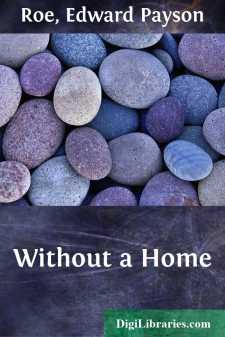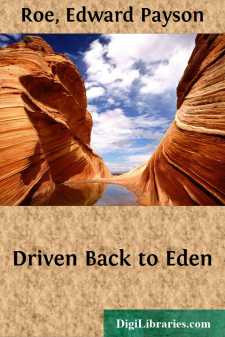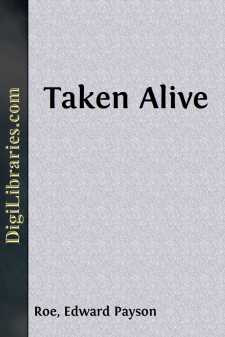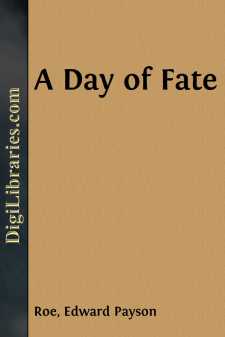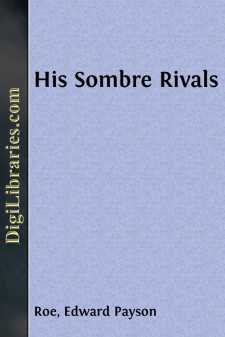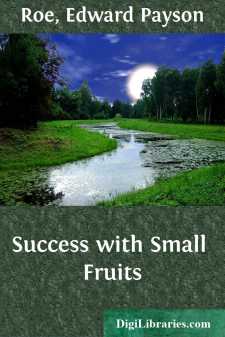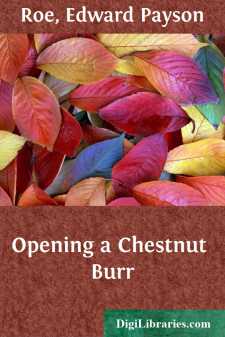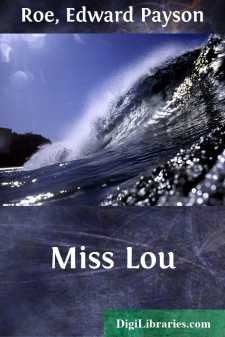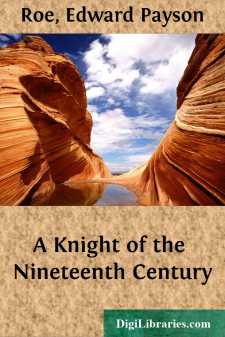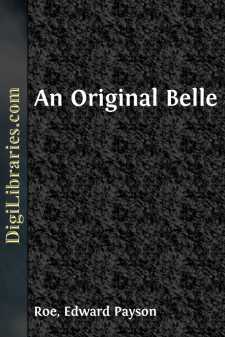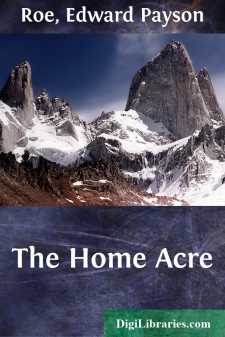Categories
- Antiques & Collectibles 13
- Architecture 36
- Art 48
- Bibles 22
- Biography & Autobiography 813
- Body, Mind & Spirit 142
- Business & Economics 28
- Children's Books 17
- Children's Fiction 14
- Computers 4
- Cooking 94
- Crafts & Hobbies 4
- Drama 346
- Education 46
- Family & Relationships 57
- Fiction 11829
- Games 19
- Gardening 17
- Health & Fitness 34
- History 1377
- House & Home 1
- Humor 147
- Juvenile Fiction 1873
- Juvenile Nonfiction 202
- Language Arts & Disciplines 88
- Law 16
- Literary Collections 686
- Literary Criticism 179
- Mathematics 13
- Medical 41
- Music 40
- Nature 179
- Non-Classifiable 1768
- Performing Arts 7
- Periodicals 1453
- Philosophy 64
- Photography 2
- Poetry 896
- Political Science 203
- Psychology 42
- Reference 154
- Religion 513
- Science 126
- Self-Help 84
- Social Science 81
- Sports & Recreation 34
- Study Aids 3
- Technology & Engineering 59
- Transportation 23
- Travel 463
- True Crime 29
Without a Home
Description:
Excerpt
Just ten years ago I took my first hesitating and dubious steps toward authorship. My reception on the part of the public has been so much kinder than I expected, and the audience that has listened to my stories with each successive autumn has been so steadfast and loyal, that I can scarcely be blamed for entertaining a warm and growing regard for these unseen, unknown friends. Toward indifferent strangers we maintain a natural reticence, but as acquaintance ripens into friendship there is a mutual impulse toward an exchange of confidences. In the many kind letters received I have gratefully recognized this impulse in my readers, and am tempted by their interest to be a little garrulous concerning my literary life, the causes which led to it, and the methods of my work. Those who are indifferent can easily skip these preliminary pages, and those who are learning to care a little for the personality of him who has come to them so often with the kindling of the autumn fires may find some satisfaction in learning why he comes, and the motive, the spirit with which, in a sense, he ventures to be present at their hearths.
One of the advantages of authorship is criticism; and I have never had reason to complain of its absence. My only regret is that I have not been able to make better use of it. I admit that both the praise and blame have been rather bewildering, but this confusion is undoubtedly due to a lack of the critical faculty. With one acute gentleman, however, who remarked that it "was difficult to account for the popularity of Mr. Roe's books," I am in hearty accord. I fully share in his surprise and perplexity. It may be that we at last have an instance of an effect without a cause.
Ten years ago I had never written a line of a story, and had scarcely entertained the thought of constructing one. The burning of Chicago impressed me powerfully, and obedient to an impulse I spent several days among its smoking ruins. As a result, my first novel, "Barriers Burned Away," gradually took possession of my mind. I did not manufacture the story at all, for it grew as naturally as do the plants—weeds, some may suggest—on my farm. In the intervals of a busy and practical life, and also when I ought to have been sleeping, my imagination, unspurred, and almost undirected, spun the warp and woof of the tale, and wove them together. At first I supposed it would be but a brief story, which might speedily find its way into my own waste-basket, and I was on the point of burning it more than once. One wintry afternoon I read the few chapters then written to a friend in whose literary taste I had much confidence, and had her verdict been adverse they probably would have perished as surely as a callow germ exposed to the bitter storm then raging without. I am not sure, however, but that the impulse to write would have carried me forward, and that I would have found ample return for all the labor in the free play of my fancy, even though editors and publishers scoffed at the result.
On a subsequent winter afternoon the incipient story passed through another peril. In the office of "The New York Evangelist" I read the first eight chapters of my blotted manuscript to Dr. Field and his associate editor, Mr. J. H. Dey. This fragment was all that then existed, and as I stumbled through my rather blind chirography I often looked askance at the glowing grate, fearing lest my friends in kindness would suggest that I should drop the crude production on the coals, where it could do neither me nor any one else further harm, and then go out into the world once more clothed in my right mind. A heavy responsibility rests on the gentlemen named, for they asked me to leave the manuscript for serial issue. From that hour I suppose I should date the beginning of my life of authorship. The story grew from eight into fifty-two chapters, and ran just one year in the paper, my manuscript often being ready but a few pages in advance of publication. I wrote no outline for my guidance; I merely let the characters do as they pleased, and work out their own destiny. I had no preparation for my work beyond a careful study of the topography of Chicago and the incidents of the fire....


